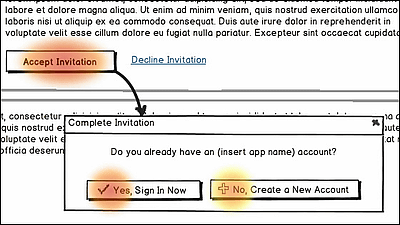How to read effectively to understand difficult books?

By
When reading a book, there are a certain number of people who do not understand the content even if they read through the book, such as when the content is technically difficult or the author's argument is difficult. Andy Matusak, a software engineer, and Brad Delong, an economist, talk about how to read a difficult book to make it easier to understand.
Why books don't work | Andy Matuschak
https://andymatuschak.org/books/
A Note on Reading Big, Difficult Books ...
https://www.bradford-delong.com/2019/12/a-note-on-reading-big-difficult-books.html
One way people gain knowledge is to read the text in a book. The author describes his thoughts by writing text on the page, and the reader follows a series of steps such as 'read the text', 'understand the author's idea', 'reach the last page and finish reading the book'. read a book. However, most authors do not believe that people can learn just by reading the text.
Matusak says, 'Readers can't gain knowledge just by reading the text. To get knowledge from a book, you need to take notes, consult with others, or write essays about the contents of the book. There is. ' By the way, there are quite a few people who have absorbed knowledge just by reading a book, and said such a person is 'a person who can really think what they are reading.' Readers who can understand what they are reading will read the book while thinking about the contents of the book, such as 'This description reminds me of XX', 'This claim conflicts with XX', 'Why did it become XX?' You can do it.
'How should I summarize what I read?' 'Isn't there any understanding of the contents of the book?' 'Do you want to refer to other books?' You have to understand the perception. However, it is said that such a reading method is not easily learned. These skills fall into an area called ' metacognition .' Successful reading requires awareness of complex metacognition. However, experiments have been demonstrated that suggest that many adults lack metacognition. In addition, research has shown that even if readers understand meta-cognition itself in mind, only a few people can do it. Performing both reading and meta-cognition at the same time is said to require considerable effort.

By
DeLong says that understanding the contents of the book is also very important for students.
DeLong's lectures on the history of economic thought include three books: Adam Smith's Theory of Nation Wealth , Karl Marx's Theory of Capital , and John Maynard Keynes 's General Theory of Employment, Interest, and Money. I encourage you to read. Teaching professional book reading is an important part of college education, Delong said. A university must teach many things, such as rhetoric, logic, grammar, arithmetic, geometry, and music. In teaching academics through books, 'how to read theoretical arguments and claims written in books,' 'how to understand advantages and disadvantages,' 'how to absorb the contents of books' Delong says that students need to be educated.
DeLong said, 'To understand a book, you need to understand what is a debate and be able to tell the difference between a debate and an argument. The discussion should not only give an opinion on the conclusion, but also, given the assumptions, identify whether the discussions are consistent and where the assumptions are. In addition, if you disagree in a discussion, you need to learn to clarify why and how to disagree. ' .

By
In addition, Delong said, 'Reading volumes 1 and 2 of the theory of national wealth will give you a powerful analytical argument. If you do not understand volumes 1 and 2, I do not understand the ideas written in the theory, and in Volumes 3, 4 and 5 of the theory of national wealth, how the theoretical system built by the author Smith was used and evaluated In the theory of national wealth, Smith describes the process of starting an argument from one assumption and leading it to a conclusion: starting from the assumption Smith considers about humanity. , We have developed a system with unique logic about the market. '
And, after the theory of national wealth, Delong's course in the history of economic thought advances to the theory of capital and the general theory of employment, interest and money. Delong's intention to list the three books is not the ability to answer the question, 'What does Marx think of xx?', But the question 'What did Marx think about xx?' Is it a big goal for students to reach the question, 'Do you want to check?'

By garetsworkshop
DeLong recommends a 10-step process for reading obfuscated books, rather than meta-cognition. The following is the process defined by Delong.
1: Know in advance what the author is trying to say in the book.
2: Assuming what kind of person the book is written for, be aware of yourself as the target reader.
3: Actively read the book and write down important parts in a notebook.
4: Summarize the assertions in the book as convincingly as possible.
5: Tell your friends and others a summary of the claims compiled in 4.
6: Read the book again in a negative position.
7: Understand what the weaknesses of the claims in the book are.
8: Consider whether the main claims and interpretations are correct against reality.
9: Think about the conclusion.
10: Establish your interpretation in your heart and use it in the future.
Delong said that this procedure would not only maximize the potential for learning by reading, but would also allow the author to find out the weaknesses and blindness of the author and to broaden his knowledge more than before. You.
Related Posts:
in Posted by darkhorse_log







